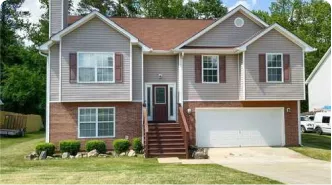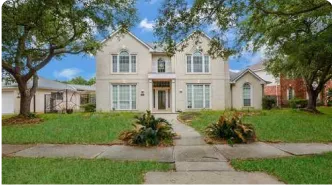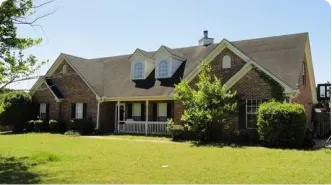Interested in purchasing an investment property like an apartment complex, commercial building, or mixed-use property? You’re going to need a different type of financing than a primary residential mortgage loan. And you’ll need to better understand the costs involved with this financing – including the investment property mortgage loan rate charged.
Take the time to learn about different investment property loans, ways these mortgage rates are different from traditional mortgage rates, how lenders set these rates, how to pay less for an investment property loan, and financing alternatives to consider.
Types of Investment Property Mortgage Loans
Before delving into the interest rates associated with investment property financing, it’s essential to understand the common loan types that can be used for investment properties. These include:
- Conventional loans, offered by banks, credit unions, and mortgage lenders, which can be used for various types of investment properties, including single-family homes, multi-unit properties, and condos.
- Portfolio loans, offered by portfolio lenders, who keep the loans on their books instead of selling them on the secondary market.
- Hard money loans, which are short-term loans provided by private lenders or private investors and often chosen for fix-and-flip properties or investments that need major renovations.
- Commercial loans, ideal for investment properties with over four units and for investors who seek to borrow only against the property’s income.
Pros and Cons of Investment Property Financing Options
Each loan type above has its pros and cons.
“For example, conventional loans may offer competitive interest rates, depending on your credit score and financial profile. But they typically require higher down payments, often of at least 25%, for investment properties. Stricter credit and income requirements also apply compared to government-backed loans. And borrowers may be limited to a certain number of financed properties – usually up to 10,” explains property investor/home flipper Jordan Woolf, CEO of We Buy Houses in Bama.
With portfolio loans, you can benefit from more flexible underwriting guidelines, making this a good alternative if you don’t meet the requirements for conventional loans. Plus, a portfolio loan may permit you to have a higher number of financed properties than conventional loans.
“However, you’ll likely pay a higher interest rate for a portfolio loan versus a conventional loan. The terms and conditions are less standardized, as well, which could make comparing portfolio loans more difficult. The availability of portfolio loans is limited, too, as not all lenders offer them,” Woolf adds.
You can likely benefit from a faster approval and funding process with a hard money loan than a conventional loan, and loan approval is based more on the property’s value and potential than your income or credit. On the downside, this option comes with a much higher interest rate and fees, the loan terms are shorter – often ranging from six months to a few years – and hard money loans aren’t recommended for long-term buy-and-hold investments, per Woolf.
Commercial loans can be costly, harder to qualify for, and complicated to initiate. For example, you may need to create a single-asset bankruptcy remote entity. And commercial loans are usually sought to cover major capital expenditures or operational expenses; you may not qualify for a commercial loan you intend to use to purchase an investment property.
Investment Property Mortgage Rates vs Traditional Mortgage Rates
The rate you will pay for an investment property mortgage loan will almost certainly be higher than what a lender charges for a traditional primary mortgage loan.
“Investment property conventional mortgage rates tend to run anywhere between 0.5% and 1% higher, or more, than residential rates,” notes Leonard Ang, CEO of iProperty Management.
Case in point: At the time of this writing, the average rate for a benchmark 30-year fixed-rate residential mortgage loan is 6.88%, according to Bankrate. That means you would likely pay between 7.38% and 7.88% for an investment property conventional mortgage loan, if not more. The rates go even higher, on average for portfolio loans, hard money loans, and commercial loans, respectively.
Investment analyst Leo Smigel, founder of Analyzing Alpha, says rates are pricier for investment properties for a key reason.
“Investment properties are riskier for lenders, and borrowers are more likely to default on investment property loans. So lenders set the rates higher,” he explains.
Rates for investment property loans, like residential loans, can be fixed or adjustable, although fixed rates are much more common in this space.
“Fixed-rate loans offer predictability in monthly payments, making them an attractive option for long-term investors,” Smigel adds. “On the other hand, adjustable-rate loans often have lower initial interest rates, but their monthly prices can fluctuate after the initial fixed-rate period (usually one, three, or five years) as market rates change – making them a riskier choice.”
Investor Dutch Mendenhall, CEO of RAD Diversified, says it often makes better sense from an investment standpoint to choose an adjustable-rate loan, such as a 7/1 ARM.
“Here, you can take advantage of a lower rate for the first seven years while the property appreciates. From there, you can refinance, cash out on your investment and reset the term with another variable or fixed-rate loan per market conditions at the time,” says Mendenhall.
Note that terms for investment property financing can last anywhere from 5 to 30 years, depending on the type of loan you select.
How Lenders Set Investment Property Mortgage Rates
Lenders base their rates for investment property loans on several factors.
“These include your credit score, loan-to-value ratio (LTV), property type, and financial stability. Higher risk factors often lead to increased rates to account for potential defaults or property management challenges,” explains Andrew Latham, a certified personal finance counselor and managing editor for SuperMoney.com.
What Impacts Investment Property Mortgage Rates
Additionally, macroeconomic factors – such as inflation, economic growth, and federal monetary policy – can influence investment property mortgage rates. Current market conditions can affect the rate, too.
“These rates are generally based on similar factors that impact home mortgage rates, although risk premiums associated with investment properties also play a role,” Latham continues.
Getting the Best Investment Property Mortgage Rate
To lock in a lower investment property mortgage rate and pay less overall in loan costs, it’s wise to follow best practices:
- Shop around and request rate quotes from several different lenders. “By exploring various lending options and carefully comparing offers, you can capitalize on potential savings and maximize return on your investment,” Latham advises.
- Have a good credit score. Your lender may require a minimum score of 620; the higher your score, the lower the rate will likely be.
- Make a sizable down payment, which will lower your LTV ratio. At least 25% is often required; put down more and your rate and terms will improve.
- Lower your debt-to-income (DTI) ratio, which is a reflection of your monthly debt repayments compared to your monthly gross income. Many lenders require a DTI of 43% or less. You can decrease your DTI by paying off other outstanding debt before applying for an investment property loan.
- Demonstrate financial strength. Prepare to furnish bank statements, monetary records, and other documentation that proves you are in good fiscal health. Strive to have ample cash reserves, as well.
Investment Property Financing Alternatives
Not eligible for one of the investment property loan options mentioned above, or interested in alternative financing options? Consider these choices:
- A home equity loan, which enables you to tap into your primary residence’s equity to finance an eligible investment property by taking out a second mortgage, for which you use your home as collateral. “You may pay a lower interest rate with a home equity loan than with another type of investment property loan, and the interest could be tax-deductible if the loan is used for investment purposes,” Woolf notes. “But the amount you can borrow is limited based on the amount of equity available in your primary residence.”
- A home equity line of credit (HELOC), which works like a home equity loan and has similar pros and cons. Only here, instead of receiving a lump sum at closing, you opt to tap your credit line when you choose within a set draw period, during which you make interest-only payments. Later, during the repayment phase, you pay back principal and interest, usually based on a variable rate.
- Seller financing, in which you borrow money directly from the seller/owner of the investment property at a rate and terms they set.
- Partner with one or more friends, relatives, or investors and pool together money to co-invest in a property purchase.
The Bottom Line
Do your due diligence before committing to an investment property mortgage loan or locking in an interest rate. And carefully weigh the advantages and disadvantages of the different financing options available, including a conventional loan, portfolio loan, hard money loan, commercial loan, or alternatives like a HELOC or home equity loan. Don’t base your final decision solely on the rate; ponder the loan’s terms and conditions, too.
.svg)






.webp)







%201.webp)
%203.webp)



%201.webp)
.webp)




